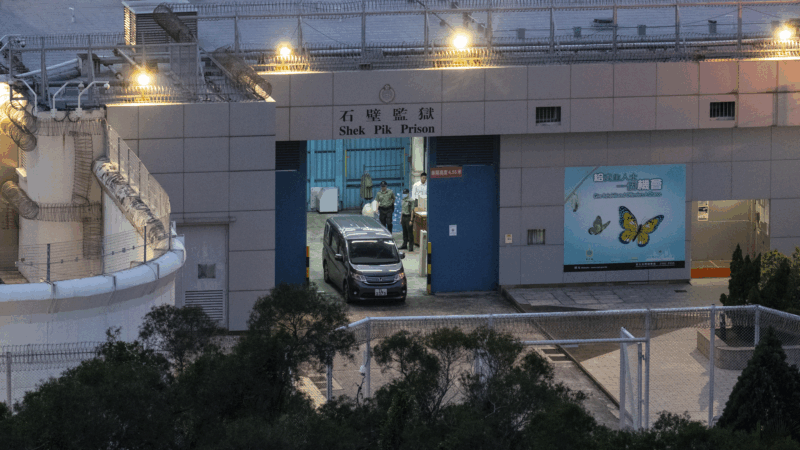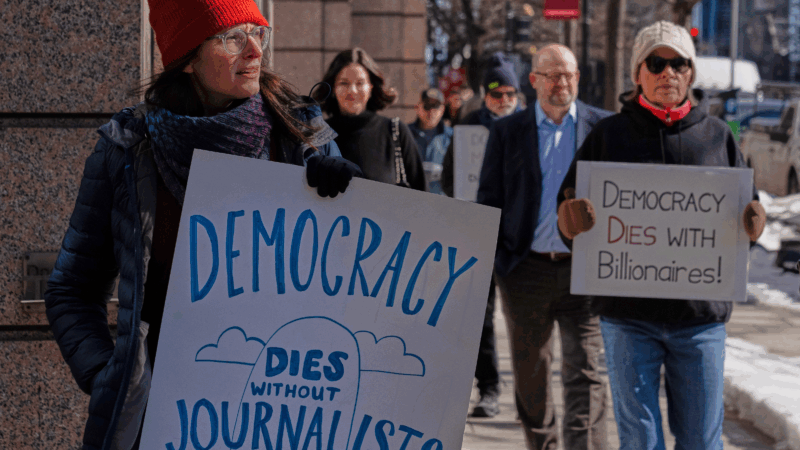Four freed from prison in Hong Kong after national security convictions
SHANGHAI — Four former Hong Kong lawmakers have been freed after serving prison terms meted out as part of the biggest national security case since Beijing imposed a law on the territory that critics say has been used to squelch dissent.
Claudia Mo, Gary Fan, Jeremy Tam and Kwok Ka-ki each served four years and two months on charges of conspiracy to commit subversion under national security legislation that has radically changed Hong Kong’s political landscape.
Their release was reported by Radio Television Hong Kong, the city’s public broadcasting service, and other news outlets.
The four were part of a group known as the “Hong Kong 47,” and were rounded up for taking part in an unofficial primary poll in 2020 that drew more than 600,000 people, despite warnings from the authorities.
Hong Kong’s once-vibrant pro-democracy political camp organized the poll hoping it would be a springboard for success in legislative elections later that year, and potentially lead to more say in policymaking.
Instead, the legislative election was postponed, ostensibly due to the pandemic, and police in early 2021 arrested dozens of people who were involved in the unofficial primary. Forty-seven were ultimately charged, with only two later acquitted.
Prosecutors said the poll was part of a plot to subvert the government. Critics, however, said the lawsuit was part of a broad assault by Beijing on rights and democracy in the former British colony.
The longest sentence in the case was 10 years, and went to Benny Tai, a professor turned activist who was a key organizer of the primary. Tai had also been an organizer behind the 2014 demonstrations that came to be called the Umbrella Movement.
Beijing swiftly imposed the national security law on Hong Kong in 2020 following another wave of sometimes huge, and sporadically violent, protests in 2019 against the city’s leadership and in favor of universal suffrage.
Officials say the law was necessary to restore order and confidence in the Asian finance hub. Opponents say it violated Beijing’s promise to grant Hong Kong a “high degree of autonomy” for 50 years after the U.K. returned it in 1997.
Pentagon says it’s cutting ties with ‘woke’ Harvard, ending military training
Amid an ongoing standoff between Harvard and the White House, the Defense Department said it plans to cut ties with the Ivy League — ending military training, fellowships and certificate programs.
‘Washington Post’ CEO resigns after going AWOL during massive job cuts
Washington Post chief executive and publisher Will Lewis has resigned just days after the newspaper announced massive layoffs.
In this Icelandic drama, a couple quietly drifts apart
Icelandic director Hlynur Pálmason weaves scenes of quiet domestic life against the backdrop of an arresting landscape in his newest film.
After the Fall: How Olympic figure skaters soar after stumbling on the ice
Olympic figure skating is often seems to take athletes to the very edge of perfection, but even the greatest stumble and fall. How do they pull themselves together again on the biggest world stage? Toughness, poise and practice.
They’re cured of leprosy. Why do they still live in leprosy colonies?
Leprosy is one of the least contagious diseases around — and perhaps one of the most misunderstood. The colonies are relics of a not-too-distant past when those diagnosed with leprosy were exiled.
This season, ‘The Pitt’ is about what doesn’t happen in one day
The first season of The Pitt was about acute problems. The second is about chronic ones.







